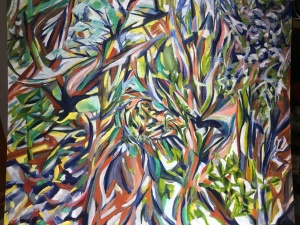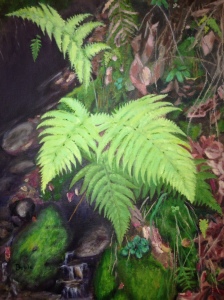We are creatures of habit. Most of what we do everyday is part of a routine that we have created and is supported mentally by learned responses to our environment. This is generally a good thing as it frees our mind from being consumed by making conscious decisions about everything we do that would burden us and take away from our ability to be creative and innovate.
Habits can be both positive and negative in getting to where we want to go with our lives. The importance of habit is that when we choose to repeat an activity often enough and over a long enough period of time we become “good” at it. As mentioned in an earlier blog posting, this is the essence of the 10,000 hours, suggested by Malcolm Gladwell in his book Outlier, required to be an expert.
In the book The Power of Habit by Charles Duhigg, he explores what in our mind supports habit formation and how we change habits. Habits are supported by the most primitive part of our brain, the basal ganglia located in the core of the brain where it meets the spinal column. This is the part of our brain most similar to that of a fish, reptile and other mammals. It’s our ancient brain. It is the part of our brain that controls automatic behaviors such a breathing and also learned behaviors like driving a car or brushing our teeth. Without the basal ganglia our brains would work very very hard to manage and navigate our daily activities.
As we all know our habits can affect us both positively and negatively. Certainly, I have a number of habits that I enjoy and feel reward me in positive ways. I also have habits that are of questionable merit (a “waste” of time) and others that are simply not “good” for me. Also, some of what I could achieve in life alludes me because I have not worked hard enough to make it a habit. Some of my habits are relatively new, post retirement, but many are longstanding, and even the “new ones” have some foundation.
Its hard to change our habits as it often requires a great deal of will power and continual effort. In my experience the best way to change a habit, or better yet to strengthen an existing one, is to use the new or more dominate habit to replace or “crowd out” an old one. After all, there is just so much time in a day. This change may be easiest to achieve when the opportunity presents itself in the form of a life change such as a new job, moving, a new significant relationship, a new family member, a significant health concern, etc. For me, retirement presented an opportunity to create and strengthen some habits that would fill time spent in what was a very significant old habit – my job. Exercise, painting, connecting with family and friends, investing and travel are some of the habits I have strengthened to fill my new-found free time. As an aside, I often tell friends that the essence of a successful retirement is doing things you would never have done before and doing them more thoroughly (e.g., slowly).
In closing I want to quote from The Power of Habit; “If you believe you can change – if you make it a habit – the change becomes real. This is the real power of habit, the insight that your habits are what you choose them to be. Once that choice occurs – and becomes automatic – it’s not only real, it starts to seem inevitable…. moving us irresistibly toward our destiny”.

